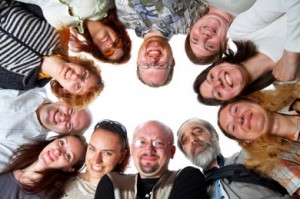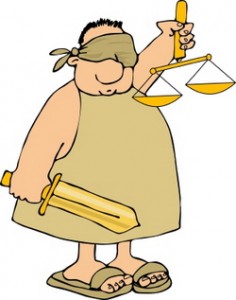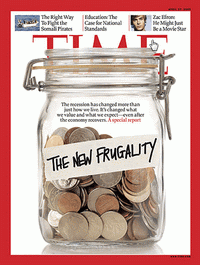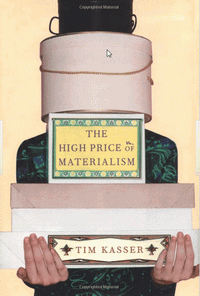
In the past few days since President Obama stated that he would use “empathy” as one criterion for selecting a candidate for the U. S. Supreme Court, negative responses have flooded the media.
President Obama talking in press conference about selecting a Supreme Court Justice gave his criteria as: sharp and independent mind; honors the constitution; respects the judicial process; and holds the judicial values upon which the country was founded. Then he mentioned an additional consideration: empathy.
Almost immediately political pundits on television screamed: “empathy is a codeword for social engineering.” Senator Orin Hatch said empathy is a codeword for “activist judge.” And Fox’s Laura Ingraham even said “Empathy is a loopy qualification for a Supreme Court judge.”
Comedians Colbert and Stewart gave the most penetrating perspective about the controversy on all of television this past week. Stephen Colbert deduced from all the television verbiage that empathy must be code for “drug-addled evolutionist with swine flu.” And Jon Stewart on the Daily Show in essence concluded that loopy, conservative pundits wore hearing aids that only said “abortion, abortion, abortion” whenever Obama spoke about judicial appointments.
Blogs and newspaper opinion pieces, at the rate of about 10 to 1, have dumped on empathy as an acceptable characteristic for a Supreme Court judge. Just like television, conservative politicians ridiculed the President in writing, claiming that empathy is a mere codeword for pro-choice and anti-guns. Writer after writer parroted the claim that empathy is the polar opposite of fairness and the rule of law.
Nothing could be further from the truth.
Look up empathy in the dictionary and you will find it defined as simply the awareness of the feeling and situation of others. In essence, it is “putting yourself in another’s shoes.”

Isn’t it reasonable to expect anyone making decisions that affect other people to use empathy as well as reason and law in their decision-making? Of course, it is what makes us human. Making friends and building community are not possible without empathy.
If people don’t use empathy in their dealings with other people, we call them psychopathic, severely retarded, autistic, or in some other way impaired. Are those the kind of people the nation wants on the highest judicial bench in the land?
Some opponents of empathy in the Court fear that fairness would be sacrificed because special interests (for example, the poor and oppressed) would be served. But empathy is like freedom, a fundamental value in its own right. Both freedom and empathy can be applied in the extreme. Valuing freedom to an excess might lead a judge to free all prisoners. By the same (politically conservative) logic, we should then not appoint a judge who believes in freedom.
From our judges, no matter how high or lowly their position, we should expect not only great skill in interpreting constitutional law, but deep caring about both sides in a trial. We should expect not just deep respect for the original intentions of the law, but a thorough understanding of contemporary society.
Every great spiritual leader has promoted empathy and compassion. Jesus Christ devoted his entire life to promoting his philosophy that conforming to the letter of the law was not nearly as important as “loving your neighbor as yourself,” “loving your enemies,” and “if anyone forces you to go a mile, go with him two miles.” The essence of the foundation of Christianity is empathy, compassion, and altruism. Without the reformation of empathy started by Jesus Christ, our judges might today still sentence an unfaithful wife to death by stoning.
The rhetoric of those with antipathy toward empathy, when analyzed carefully, reveals a false dichotomy over the ideal of impartiality and the ideal of empathy for the disadvantaged. Empathy antagonists admit that pure impartiality is not attainable but striving for it is the ultimate attribute.
This blind justice argument reveals “black and white” thinking. One flaw in their presumption is that there is always one right answer. The second flaw is that by blind folding our judges, we keep them from observing reality.

If our chief justices are blindfolded, how can they see things like the fourth branch of government, the lobbying sector? This fourth branch, with budgets in the billions of dollars, writes legislation, shapes public opinion, and pressures every other branch of government. Read John Gresham’s The Appeal for a glimpse of how money and power buys not only influence but also actual judges. Yes, it is fiction but based upon actual situations. The authors of the constitution never envisioned this fourth branch. Robert Kaiser of the Washington Post in his 2009 book, So Damn Much Money, calls it the “The Scandal of our Time.” Shouldn’t our courts keep this extremely powerful force from undermining equal justice for all?
The sad consequence of bashing empathy is that American children will learn that empathy is bad. They already learn to minimize empathy by competing in sports and electronic war games. If they also hear from America’s leaders and pulpits that empathy should be shunned, the fabric of American society will fray, perhaps irreparably.
From the very beginning, this nation depended upon empathy and community as neighbors chipped in to build a newcomer’s house. Without empathy, the American character erodes to self-centered insensitivity to others and their plight.
People should debate Obama’s choices to the Supreme Court, but they should not blindfold themselves to the harm they create by debunking empathy.

